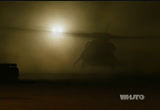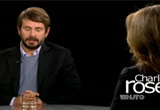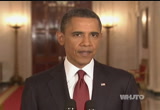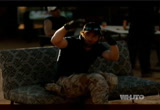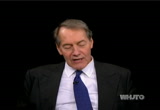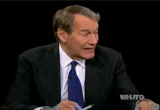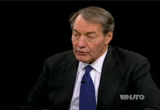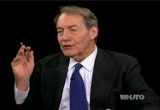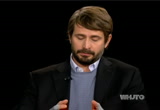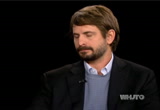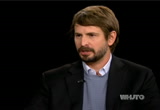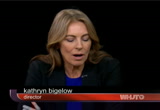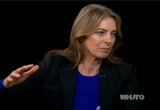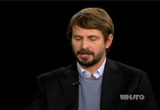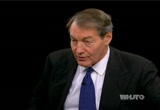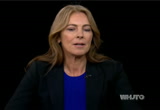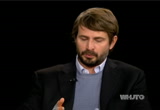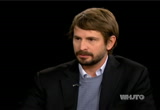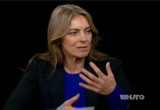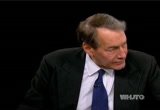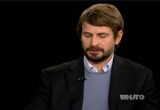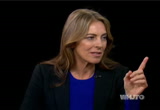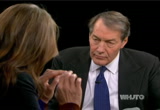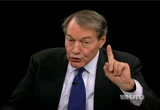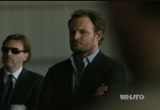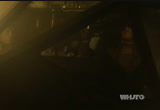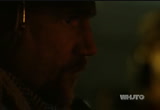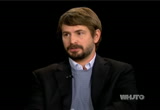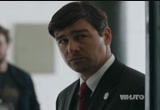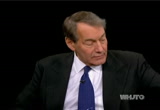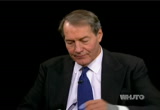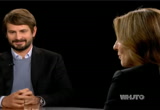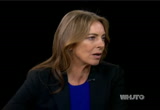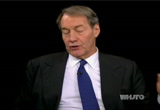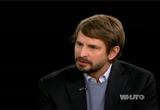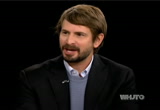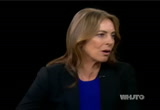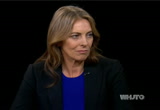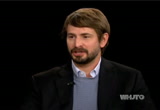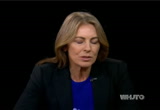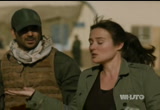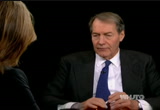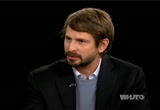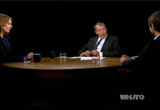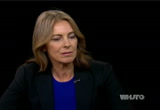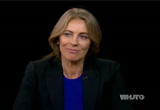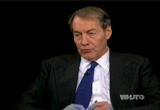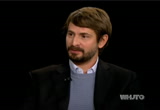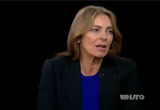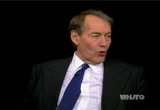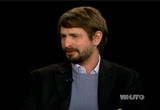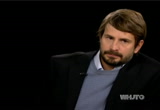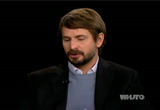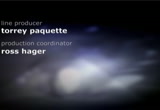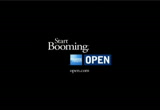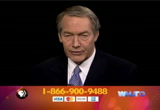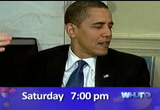tv Charlie Rose WHUT December 7, 2012 3:00am-4:00am EST
3:00 am
>> you know it's certainly a world that, i can speak for myself, i knew very little about. i just sort of imagined this sort of you know take place in the shadows, has it should, as it needs to. but then you know, to be able to, to be able to peel back the curtain and have a glimpse at a process and a character and what kind of, what is the psychology behind somebody that dead indicates ten years of their life exclusively to finding one person. >> what was going on there. why did it take so long. what were they doing. you have america the most powerful nation in the planet and you have this guy. i take people behind the scenes to see whattate would be like to be an officer and what it would be like to be tracking osama, and me you did it.
3:02 am
captioning sponsored by rose communications from our studios in new york city, this is charlie rose. >> good evening. tonight i can roar to the american people and to the world that the united states has conducted an operation that killed osama bin laden, the leader of al-qaeda. and a terrorist who is responsible for the murder of thousands of innocent men, women and children. for over two decades, bin laden has been al-qaeda's leader and symbol, and continued plot attacks against our countries, friends and allies. the death of bin laden signifies the most significant achievement to date in our effort
3:03 am
counterterrorisms professionals to work tire loalsly to achieve this outcome. the american people do not see their work nor know their names but tonight they feel the satisfaction of their work and the result of their pursuit of justice. >> rose: that was president obama in may announcing the killing of america's most wanted terrorist. a new film about to be released by the oscar winning director kathryn bigelow and screen writer mark boal examines the ten-year hunt for bin laden. it is called zero dark thirty, and here is the latest trailer. >> can i be honest with you? i have bad news. i'm not your friend, i'm not going to help you. i'm going to break you. do you have any questions?
3:04 am
i want to make something absolutely clear. if you saw someone coming to rescue -- i want you to know that you're wrong. this isn't, there's nobody else, there's just us. we are failing. >> you really believe this story, osama bin laden? >> yeah. >> what convinced you. >> her confidence. >> if you're right, the whole world's going to want in on this.
3:05 am
you will never find him. >> it is one of the few moments >> rose: this is movie journalism that snaps and stains and par fi the decades clamor and clutter into narrative clarity with a sale tree kick. joining me is scribe writer mark boal and director of zero dark thirty kathryn bigelowing i'm very please to do have them back at this table, welcome. >> thank you. >> rose: i don't know where to start. let me start with the idea of bin laden and his, and the search to find him. when did that get inside your brain so that you thought maybe
3:06 am
maybe. >> sometime, i don't remember exactly when. >> rose: it was before hurt locker was it not. >> it was around then, and after hurt locker was finished we were talking about what the next picture might be. with a decided to focus on the attempt to kill bin laden in torabora in 2001 when special forces more or less had him in one square mile box. and the peas of the world were on him -- eyes of the world were on him and it was fresh in everybody's mind. we were working on that film for a number of years researching it, writing it and we were pretty close to actually make it a couple months away. >> rose: it was about torabora. a subject i pursued on this program many times. >> it's one of the great military stories of our time. >> rose: had him in your sight and he slips away. >> and the story of u.s. special
3:07 am
forces working with local afghan warriors in the culture clash there. so that was the idea. and then things changed. >> rose: things changed meaning what happened. but take back before the fact. you were working on the movie before the may operation. >> yes. we were, i was actually casting, i was auditioning actors. we had a scout in kazakhstan and we had a trip in order to see the area in which i would be replicating in kazakhstan and history intervened. >> rose: what intrigued you about this story. why is it so intriguing of all the options you had coming off the great success of hurt locker? >> well i think both of us thought this was potentially certainly a fascinating story. maybe the world's greatest man
3:08 am
hunt. and no question perhaps the world's most dangerous man. >> rose: pretty good element. >> pretty good element. >> rose: and intense interest in this from around the world. >> exactly. >> but i think we were both curious just as americans or as citizens, what have you, what was going on there, why did it take so long, we were they doing. you have america the most powerful nation on the planet and you have this guy and ten years to try to unpack that and take people behind the scene and show them what it would be to be an intel officer, what it would be like tracking him and to bring that hunt to life and how they did it. >> rose: so the question's come up before, how much cooperation from the c.i.a. dod from the whitehouse, a. and did it affect at all the release date? >> well the release date was
3:09 am
generated by the production schedule. i only finished the movie i'd say about 10, 12 days ago. >> rose: right. >> so we couldn't have release this movie any earlier than we are releasing it now. >> rose: [indiscernible] >> it helps, it definitely helps but mark was reporting the story and he was the one communicating with various sources. and really kind of getting inside that community in order to tell this story as faithfully as we could. >> rose: what did you know, both of you, but what did you know before may that you were working on? what kind of story were you doing. >> i was completely focused on
3:10 am
toraboa. >> rose: really. do you know why he got away from torabora. >> can we make that movie. >> i can show you in the movie. >> rose: can you make that movie now? >> i don't know. >> rose: you worked on it, you got the elements there. >> just like in story how they got them. there's no one piece of the intelligence puzzle. it's a constellation, it's a lot of different thing coming together. >> rose: i've always been interested in that because all the people who sort of around that story have come here to this table. so how did you go about building on the announcement that the president made that night all of us, that sunday night waited for him to say what he said. so what do you do then? because this is not a story that anybody inside at that time was talking about. >> well, that's not exactly right. >> rose: i know i know it's not exactly right. >> they were on tv pretty
3:11 am
quickly giving a talk. and considering that it was a pretty recent special forces mission, there was a lot of discussion about it in washington and details were coming out all over the place. but the intelligence hunt was, took a little longer to report out. >> rose: is what came out from brennan and what we now know, is it different? >> it's been, it's been, it's been clarified over time. >> rose: when he was shot, that kind of thing. >> the details of the raid have come into better focus. >> rose: how do you explain that variance. >> i don't think there's any great mystery to it. >> rose: is it the fog of war or something else. >> 20 odd guys and they all have slightly different recollections and information's being passed up the food chain very quickly and you know, it's pretty remarkable. i mean they're being debriefed probably within minutes, you
3:12 am
know, and then as soon as they land, i'm sure they're being debriefed and people then passing that information along. it doesn't seem that extraordinary to me. but i will tell you that we were, i thought that there was going to be a 40-minute fire fight in this movie. and we were actually, because -- >> rose: extraordinary 20 minutes. >> yes. probably that was first information out from the assault. the first description. >> rose: is that, would you say you're made to make that kind of movie, the last 40 minutes, to capture the essence of that 40 minutes. that somehow when it comes to action, you par. extraordinary. >> well thank you very very much. that was a very logistically challenging sequence to shoot, but fascinating. i mean obviously. >> rose: why fascinating. >> why fascinating. because just learning about the methodology how the special forces operate. for instance you know the way they move, there's a kind of methodical nature to the way
3:13 am
they move, very careful, very considered. and having to shoot in a quote/unquote low light condition because it was meant to be a moonless night. so we were shooting, we decided, we opted for a digital format in order to do that. we also used real night vision lenses that we put on to the lens themselves. so then we had to go into of no light conditions so that those lenses would operate, they would operate, you know, to the best of their ability. so that was basically we had to figure out all the logistics, all the choreography. we built that compound from the ground up, and it had to be built with a really pretty serious foundation because of the black helicopters and the roto wash would have taken apart any normal let's say movie set tore taking that down. there were a lot of physical
3:14 am
elements before we broke down. >> rose: what sound me was how many doors they had to blow up to get to him. you had some sense there was a compound yes but they would walk in and therefore they would be there and go get him. it wasn't like that at all. >> no not at all. >> rose: and these guys trained every aspect. >> i think some of that's been overstated. >> rose: the training. >> i think some rehearsals but most of the training to my understanding had to do with the fact that these helicopters wee fairly experimental at the time and weren't used in combat mission at all. there was a lot of questions about the avionics in which we saw in the aftermath one of the helicopters actually crashed. so it was from a military perspective getting the guys to and from was one of the most unusual parts because they operate using technology that hasn't really been used before. >> rose: i should set this up
3:15 am
for the audience at home who hasn't obviously seen the movie. this is a story how they would lead him to pakistan and a story about how they made a decision to go in and either capture or kill osama bin laden. there's are two different stories. >> and there's the story. >> there's a third story when they go in and actually do it. >> two for the price of one. >> rose: talk about the c.i.a. aspect of this. how long did it take them to get on the trail that would lead them somewhere? because we know that after 9/11 i mean they were all kinds of things going on with american national security people to get somebody to give some information as to where osama bin laden was, to get their hands on osama bin laden. >> well, i mean my humble opinion, mark did an extraordinary job of reporting
3:16 am
this and then out of the reporting turning this into an incredibly dramatic screen play. i'm the recipient of that trying to transform those pages into a screen. but early on and again indemnify understanding from the first hand accounts, there was a courier that was somebody that in the case of this movie, the woman in the intelligence community decided to focus on. >> rose: played by jessica -- >> beautifully played by jessica chastain, she pursued the courage, the conviction that there was something in this lead. there are multiple leads that various people are tracking but there was something in this lead. she has a theory that there were two, when they were acquiring information, there were two
3:17 am
individuals that, whose whereabouts were withheld. and that was the courier and that was osama bin laden. everybody else there was information on. so that was significant in and of itself but these two individuals were you know kind of -- >> rose: they were the too you knew nothing about. >> you knew nothing about. >> rose: and maybe there was -- >> and therefore there was a kind of significance in the fact that you knew nothing. and that was certainly in the early days i'm sure that was important, important enough to pursue. >> rose: so if i go find a young agent that looks like jessica chas tain as at the center of this team that found the courier. >> well first of all, we, you know, there are some public figures that are represented. everybody else in the film, we didn't have actor that had any physical resemblance because
3:18 am
these are civil servants and we want to be respectful of their privacy. >> rose: but you know. >> it's not to say there aren't attractive people at the c.i.a. there actually are. >> rose: of course. but you know them. you know them. >> well, the film, i don't want to tell you about me personally. >> rose: you did the research. >> i did the research. >> rose: -- based on the story -- before you became a screen writer. >> yes and i gathered a lot of firsthand accounts from people that were directly involved in this operation. >> rose: how did you do that. >> and was able to somehow make them into a screen play. >> rose: how did you do that. >> the same way i would have reported an article if i was writing an article. in the same waive you would report a book or a tv. to me the hardest thing in the word would be to report a tv show because you go would microphone and camera and say talk to me. the second hardest thing would be a book or let's say an
3:19 am
article because you say look, i got a source that's pretty particular because my editors are going to require me to point some foundation for this information. the easiest thing would be to go and say look it's a movie, it's a movie. if you talk to me we can hopefully represent the spirit of what you're saying. but i don't have, i'm not held to the same journalistic standards. >> rose: tell me how you work together. you're the director, he's the writer but this is a team. >> well it's very collaborative. i mean, i am, i love work that's challenging. i love work that is you know kind of feels, i suppose the only way to describe it is sort of like contemporary. in other words there's something interesting working in the space of the iraq war while the war's going on. in this case, you know, a mystery that probably is pretty
3:20 am
fascinating to a lot of people in this country. maybe even many other place in the world. so you know this kind of contemporaneous qualities. >> you can see -- >> rose: yes. >> what more do you want. >> rose: fabulous screen writers -- >> right. we're interested, we have a shorthand now. we made one movie together which was, it did all right the it was a lot of work and it was really a labor of love and this one was too really a labor of love. so we've got kind of a shorthand. >> rose: there is this scene in which i think she says the courier is in the files. >> yes, yes. >> rose: tell me about that. >> well so that's towards the,
3:21 am
we spend most of the movie tracking, tracking this ghost to is meant to be the courier. there's an immense amount of effort trying to find out this guy's annual name. then you find out where they are located in the planet. all you had was his war name. and there's a scene in the film towards the back half of the film 2009 -- >> 2010. >> where they discover, one of the analysts discovers in fact they have the name of the courier in their files so to speak. i don't know if it's a computer or filing cabinet. since shortly after 9/11 and that's something that came out of the reporting i did. and there's a lot in the two hour movie that's you know ten year that's compressed but we thought that was an important piece of information. >> rose: that gave them the link they needed, a name.
3:22 am
>> a name that's like saying charlie rose from detroit. >> it's like saying charlie from detroit. >> charlie from detroit, excuse me. >> getting the name, there's no one thing. there's no one thing that gets you to the bottom line. >> that was a huge -- >> then you can get the phone number. now you have a maim and phone number. then you start listening to the calls. a year goes by listening to telephone calls because they're listening to calls of the saide family and then locating the people making those crowds and then finding that person in a crowded marketplace and them tracking the car back to the compound. that's when you see in the movie. >> rose: look to america. >> he hadn't bought a cell phone. >> it's another big turning point. >> rose: one of the interesting things bit is many of the people in al-qaeda
3:23 am
learned that lesson, not to deal with, not to use cell phones. >> he knew it too. he turned the cell phobe off and took the batteries off. >> that was revealing. >> part of what made him pop up on in sort of radar of all this data coming in is wait a second who in 2010 only uses their cell phone once every two weeks. who does that. >> rose: also this thing about absence of substance what's that. >> that was my point about their only two individuals whose whereabouts were being withheld no matter how they tried to ascertain that information. and that was this particular courier and he'sman. that gave a kind of significance greater than all the others because that was the case with osama bin laden. >> a lot of this is hindsight
3:24 am
too. they were tracking as you point out, they were tracking many different leads. and it's only in hindsight that the courier lead seems to be the winner. >> like money -- >> rose: significant. >> so significant. because there was a pareto -- brother-in-law in the tribal areas. i think one's going to lead you to the family member. he got killed in a drone strike a couple within six months when this whole thing happened. up until then they thought maybe he's going to be -- >> money for walk-ins family and the courier. i'm sure there were many others. >> rose: they were dedicated. i want here so we can identify the quality of the action here. this is the scene in which the c it a operative maya played by the extraordinary jessica chastain. briefs the troops on two narratives about bin laden. >> you'll notice the panels similar to what we use on the
3:25 am
b2. they've been muffled with decibel killers -- but it can hyde what do we need these for, it's certainly anti-air -- >> do you want to brief him? >> there are two narratives about the location of osama bin laden. the one you're familiar with is ubl is hiding in a cave in the tribal areas surrounded by a large contingent of loyal fighters. that narrative is pre 911 ... understanding of ubl. the second mayorive that is living in the city, living in a second with multiple points of egress and entries, access to communications so that he can keep in touch with the organization. you can't run a global network
3:26 am
and interconnected cells from a cave. >> rose: there we see her explaining. this scene in fact is talking to before as they're preparing on this mission and she's sort of providing information. >> this is a scene where they learn the objective of their profession. >> rose: before that they did not know. >> no. >> it was secret even to them. >> rose: how soon before the mission did they announce. they knew they were going on some high value target all that kind of stuff but they didn't know it was osama bin laden but they weren't stupid either. >> i would have to go back and look. less than a month probably. >> rose: this is a scene which was led by team leader patrick played by joel edgarton get into helicopters and head out on their mission. here it is.
3:28 am
>> rose: do you know whether they the c.i.a. agent who was part of tracking down the courier was there watching them lead, is that factually accurate. >> physicianly standing at that exact place in time? >> rose: yes, sir. >> i did not get into a scene by scene analysis. first of all this is not a documentary. >> rose: afghanistan. >> that's in afghanistan. >> it is a motion picture. however, to the best of my ability within the constraints of a motion picture i tried to be as faithful as i could. and there's going to be a lot of books written about this event so hopefully i'm consistent with those books and i'm gratified so
3:29 am
far no one has stood up and said. but then there was definitely an agent forward deployed and then i think that hopefully we pre that to life. >> rose: fair enough. i'm not going to make you go through scene and of by scene and say is this accurate. >> it's a true story, that's what i can tell you. >> rose: there's evidence of a capture the bottom of the ocean somewhere. i want to see one more scene. this is where the c.i.a. station chief joseph bradley and his colleague dan talk about meyer. here it is. >> third floor northeast corner >> [indiscernible] for the hard stuff. >> washington says she's a killer. >> rose: what's the significance of the scene we just saw?
3:30 am
18 seconds. >> well, it's, it's really how she interfaces with her colleagues and her colleagues kind of adjusting to the new person, just fresh in from washington. and it's sort of gives you an impression of their assess the of her. >> rose: it's fair to say that at some point between 2012 and 2002, there was some exasperation within the united states government about the failure to find osama bin laden. and if you ask anybody as i did often at this table, they would say we don't know. they would say we've lost the trail. fair enough. so there was some pressure on the people who were charged with doing this because the president had set -- first thing on panetta, get this guy. >> it's an enormous amount of pressure and what we try to demonstrate in the film, the stake weren't just about 9/11 right because al-qaeda continued to attack western targets.
3:31 am
and you know, to have the job where if you make a wrong decision, you know, you might somehow be comfortable for not preventing an act tack spain. >> for every day, there could be another london bombing or another marriott. a myriad of events could happen so that's the pressure you're under as well. >> rose: but not to contradict that point we also know events took place and continue to take place after osama bin laden was killed because al-qaeda spawned kind of different organizions, in asia. >> yes. >> rose: what was the most difficult thing for you as a filmmaker to take this brilliant screen play, screen writing and turn it into an adventure story?
3:32 am
>> trying to be faithful to the research, be faithful to the characters, be faithful, really give the audience a look at what it might be like to work in the intelligence community on a hunt this important. what would that be like. i didn't have a clue before he began reporting this. >> can i let you in on a secret please. it's easy for her. >> rose: it's easy for her because she's good. >> it's not her first radio. yes, exactly. >> i mean, you can't say that but i can say it for you. >> if you cast it right you have great material in front of you, it's a great story and you have great actors and a great crew. i mean, i don't know. >> rose: but you're good in every aspect of this. look at casting and what you did in hurt locker. introduced to an actor people knew but you made him even more
3:33 am
known and he was the perfect casting. jessica chastain. why her for this role? >> well -- >> rose: other than the fact she was a hot actress. i don't mean the way they looks but she does but she had other roles offered to her. >> her facility with language there's a kind of precision she has. she's extraordinarily talented and her ability to kind of, she has a real beautifully highly nuanced, very finely calibrated performance she's able to deliver from scene to scene to scene to scene. and she humanizes this hunt. i have been a familiar of hers since i saw i think i saw a raw cut of her years ago. the subtlety this woman is capable of and yes there's a ferocious quality. she is fearless.
3:34 am
>> rose: you just said the word that makes this a great movie for me. she humanized it. we know in this movie these are real people and they have experiences and careers and relationship that made up this story that's historic. that's what the movie does. >> thank you. >> rose: don't you agree. >> i think we hope for that. >> rose: you're going to say we had many other things. >> we had many conversations about that trying to really bring this story to life, you know. >> rose: to make it a real story not just reading what the story's about. >> the people behind the scenes that do it. and of course the presidents are important and of course the people you see on television are important. >> rose: so you made a decision in making this movie not to show the situation room at the whitehouse where those that famous photograph of the secretary, the president in a jacket, the secretary of defense, secretary of state, and
3:35 am
others in that room. why? >> well again i think what was interesting to us the people at the heart of this hunt, people on the ground, people in pakistan, the people you know with surveillance just good old fashion. whatever means they were utilizing, you know, what, peel back the curtain and show an audience what it would be like to be at the center of this operation. >> besides, you've seen that photo. you really want to see it again. >> rose: well i do but that's just me. i want to know what the president might have said in that room. >> that will be another movie. >> if you do that and it's denzel washington or some other great actor playing the president you say that's not right, that's not really him. >> rose: because you know them. >> you know them. >> rose: you didn't want to go back and use footage. >> it's also, there's a certain narrative imperative when you tell a story through one person's eyes that you sort of
3:36 am
try to channel the audience through that character. >> it breaks the immediacy of it. we're almost in real time. even though it's ten years compressed into two and-a-half hours, you're kind of in real time tracking this guy. >> rose: because i'm fascinated by the korea story, i did want to know more about her, you know. we see her and we understand what her role is and she's at the center of your action and she is represented, she not a composite but she's part of a group. i wanted to know shoe she was, where she came from. did you not tell us it was a judgment about making movies or did you not tell us about her because there was some el the of being respectful of the c.i.a. >> both, i guess i like those clint eastwood movies where the guy comes into town and you don't know where he's from and you lean into him. to me there's something the story's specific there's a ton of information but hopefully there's something universal
3:37 am
about the character as well. and so kind of a little bit of mystery goes a long way. >> she's only defined by her actions. i think there's something very significant about that and kind of extraordinary about a character that reveals himself that way. >> rose: you've identified with her? >> that's a difficult question because -- >> rose: you're a pioneer filmmaker. >> thank you. >> rose: because of talent and gender. >> i admire that character i admire her taught -- tenacity. as a man or woman we can certainly aspire to those qualities. >> rose: you're the wrong person to ask. what's the answer to my question. >> so kick me under the table. i can tell you charlie that she,
3:38 am
knowing her as well as i do, it was the story, it wouldn't have mattered to her one bit if it was a man. the story led us to this, it was what we found. it's what the reporting reveal. and, you know, i'm pretty sure that when she wakes up in the morning and thinks about the day, it's you know can i make this shot, can i hit the budget. if not, it's the same thing any director thinks about. >> rose: i think it was tom hangs who said all great stories are about lones. was she lonely. there's a difference between lonely and a loner. maybe she's a loner but not lonely. >> i think she's, it's an interesting question.
3:39 am
i mean, i think she's so completely consumed by her quest, by her objective, by this drive. she's truly immersed. >> she's alone with her work. >> she's alone with her work, that's beautifully put. >> sometimes that teamwork really well. >> rose: when people talk about that do they try to find some connection between her and the character claire deign plays. >> i've heard that. >> rose: it's a driven cia person. >> i haven't seen the show but my understanding of it is that's it's based on an israeli. so this is a true story. >> rose: yes. >> i suppose it's an interesting coincidence. >> rose: tell me about casting beyond jessica. you were looking for?
3:40 am
>> great actress. great actress. >> rose: did you want people that were not necessarily well-known as actors. >> i did. >> rose: why? >> well, first of all i was looking for actor that had a significant body of work, that's really substantive actors but perhaps were not yet household names. i think especially when you're dealing as mark said it's a true story when you're dealing with characters that are meant to be true, meant to be true to life, you want to have an original relationship with them. you don't want to kind of have to sort of be watching them and sort of scrubbing past performances or past characters away so you can have sort of a clean true line to them. and i think, and it's an opportunity to work with these, even you know just extraordinary talents like jason clark, mark strong, edgar ramirez, carl chandler, jennifer eely. and these are people that are
3:41 am
significant actors, represent ta, with a tremendous body of work. they just haven't kind of made it to that place where they're household names for instance. and there's something exciting about that. >> rose: let me look at jennifer healy. this is scene four and an al-qaeda leader. here it is. >> why are there gate guards there. we talked about this. no one is supposed there. you might have spooked him already. >> the procedures only work if we follow them every time. >> this is different, i'm sorry i can't explain but it's for a good cause. >> look i'm going to stop for everybody's safety okay not just about you. >> i just need them to go away for a minute. you can search. >> rose: this is extraordinary because this is real life too. this is a real story. this is a story we all know and people have written at least one book about this. >> you probably covered. >> rose: i did indeed.
3:42 am
and this is a story of how somebody connected to al-qaeda gained access to c.i.a. agents that were on ground and walked in and trusted him and they would lead him to osama bin laden. he was wearing a suicide vest. how many lives lost? seven lives lost and some extraordinary c.i.a. >> civil servants. >> rose: you said about this movie you wanted to show a human face of the world of counterterrorism which is part of what we alluded to earlier about humanism the humanity of these people or humanizing them. but tell me about what it is, how that fits into what you did here. >> well i think it's, you know it's certainly a world that i can speak for myself. i knew very little about. i mean i just sort of imagined it's sort of, you know takes
3:43 am
place in the shadows, as it should, as it needs to. but then you know to be able to, to be able to peel back the curtain and have a glimpse at a process and a character and what kind of, what is the psychology behind somebody that dead indicates ten years of their life exclusively to finding one person. >> you have to see the movie. >> exactly. >> rose: okay. >> but it's also, it's also you know, these are, it's saying we don't have to mythologize everything in this country. he was killed by ordinary people doing extraordinary things and demythologizing that and maybe we can demythologize al-qaeda.
3:44 am
>> rose: interviewing the admiral he said to the president we do 13 missions like that every night. that's our mission. this is what we do. we go in a helicopter and go get somebody and then we fly every night. >> every night. and sometimes more than that. >> rose: and that's the easy part of it too. >> it's the job. >> rose: the job. and here what's interesting about the movie too. in a sense it's not just going in there and accomplishing your mission, it's getting home. and how fast can you do the mission, how fast can you make sure that you're not stopped. how quick will the pakistanis figure out what you're doing and do something about it. >> pretty quick. that's about the special operations and he says 30 minutes is the most time you're supposed to spend on the ground. 30 minutes. >> rose: the thing that also amazes me about this movie is where you started. and tell me why.
3:45 am
you started with looking at a man in custody being tortured. what's the point? >> well actually we started with a black screen. >> rose: of course you did but the first thing. >> and 911. >> >> rose: the voices of 9/11. >> the voices of 9/11. and you know the enhanced interrogation was part of that history. and it was what the research shows. and it was again part of that ten year journey. we used many different. there are many different methods utilized. electronic surveillance, track and trace as the years go boy. but that's one of the, that was one of the methodologies early on. in that hunt. >> rose: if you did not know what water boarding is, you do now.
3:46 am
>> this is tough stuff. it's controversial. it will continue to be controversial. but it's part of the story here. i mean the detainee program was a big part of what the c.i.a. was involved in. and i think there's something you know worthwhile talking about that to some degree and not white washing it. but not being gratuitous hopefully and not taking it over the top. >> rose: what's interesting about the fact that a former art student in san francisco is now directing movies like this. what is it about you that likes this kind of challenge? think of the movies you've made. >> it's so hard to answer that.
3:47 am
you know i think that there's a kind of responsibility to tell a true story that affects all of our lives and i think that's what motivates me. >> rose: does life and definite motivate you. the movies you make are about life and death. >> there's a gravity at the heart of this piece. there were many lives lost over the course of those ten years. so i suppose a kind of real substantive gravity moves me. and that's really motivating. >> rose: what's interesting -- >> i'm using the only skills that i have to try to express it. >> rose: you said that before about yourself, you felt a sense of mission or responsibility to push the frontiers of the genre. this is a genre and you're pushing the frontiers, yes? >> she's never going to admit to
3:48 am
that. >> rose: that's why we're here. you look at that but i know you don't want to appears because you think it's self serving. much i'll come back to this, the people at home. zero dark thirty is the title which means? >> 12:30 at night. >> rose: 12:30 at night. that day. >> it refers to the timing. >> rose: we also remember and this is in the film too. this is all we know about this so i'm going to tell you anything you don't know. we know that they had problems with the helicopter and bob gates said to me boy when he saw that. because he was down at the heart of it and he remembered that. he says, you know, is this -- >> he had actually part of why he was in favor of the bomb as opposed to the helicopter raid. he was afraid of that. >> rose: here's the professionalism again. they said mission continues.
3:49 am
there was not a moment that they didn't say. they may have considered it but they were so professional and so well trained that they knew the mission was still open to success. >> well it hadn't been, it was a hard landing, so there were no casualties, and i think the guys got shook up pretty good. but ... like you said, they do assaults every night. >> rose: the two of you when you were making this movie look at each other and say we're making a movie about one of the great stories of our time. >> i don't think we'll get another one this good. >> kind of the story of a lifetime. >> the whole time. >> rose: this is the story of a lifetime and we've been given this opportunity because we were prepared to do it and we had the right combination of skills to do it. not just as screen writers but
3:50 am
as a reporter. i think reporting is just as important as the screen writing. >> thank you. >> rose: it's true. >> i had to report it. >> rose: i need you to confirm him and him to confirm you. >> when i started this, there wasn't a lot of source material. you know. and there just weren't a lot of books. i'm reporting this contemporaneously. there are really big guns in this field. the books were coming they were in process at the same time of the movie. >> rose: there are a lot of books and interviews. "60 minutes" had an hour on the guy. what have you learned that you didn't really know since the fact that there's more come out or did you already know all that because you were talking all the sources that are now writing all the things. pretty good question. >> that is a pretty good
3:51 am
question. i might take the fifth on that one. >> rose: the answer's yes. there's no one hero here, they're all heroes. it's a combination of things coming together from the c.i.a. side, you know. and then the operational side. and you see sort of the moving parts of a variety of government, they're cooperating. >> yes. it's a three, i guess it's not branches but dod, c.i.a. command and role in the whitehouse. obviously there's a lot of turf battles there. somebody growing up being a metro reporter a lot of times you pop the hood of government and you look inside and say that's how you guys do it. >> rose: remember watergate. >> any kind of daily corruption. but it was kind of, i have to
3:52 am
say just to look under the hood and see a v12 there let's sort of working. >> it's really admirable. >> it's really nice to know that's also a side of the story. >> kind of made you proud to be an american. >> not to say they don't do things that are really ugly and try to document. >> rose: speak to that. there was purpose in that. a lot was at stake here and things done that not necessarily americans would call, might make americans question. >> yes. it's been a dark, there should be no doubt, it's been a dark period since 9/11 and yes therbeen dead case but there are also you know, i think there are mistakes made. >> rose: so this movie against, i mean this story begins at 9/11 obviously but we knew osama bin laden before 9/11 we know what happened, we know therefore the search and we know
3:53 am
that in 2008 president obama said to leon panetta as choice of c.i.a. director your number one directive is to get osama bin laden. we also know after it came that tom donald went to the president and said i just heard from langley something that might be interesting. and this was the moment the president began to know something might be happening which would later have him be required to make all the decisions that resulted in what happened. a human story, you know. and he says the most extraordinary 40 minutes of his life. >> i'm sure that's true. the presidency's riding on that. and history. not just him personally but in some ways the hopes of a nation. >> rose: thank you. >> thank you very much. >> rose: a pleasure as always. >> thank you. >> rose: the movie is called as you know zero dark thirty. it opens in new york and los
3:54 am
119 Views
IN COLLECTIONS
WHUT (Howard University Television) Television Archive
Television Archive  Television Archive News Search Service
Television Archive News Search Service  The Chin Grimes TV News Archive
The Chin Grimes TV News Archive 
Uploaded by TV Archive on

 Live Music Archive
Live Music Archive Librivox Free Audio
Librivox Free Audio Metropolitan Museum
Metropolitan Museum Cleveland Museum of Art
Cleveland Museum of Art Internet Arcade
Internet Arcade Console Living Room
Console Living Room Books to Borrow
Books to Borrow Open Library
Open Library TV News
TV News Understanding 9/11
Understanding 9/11